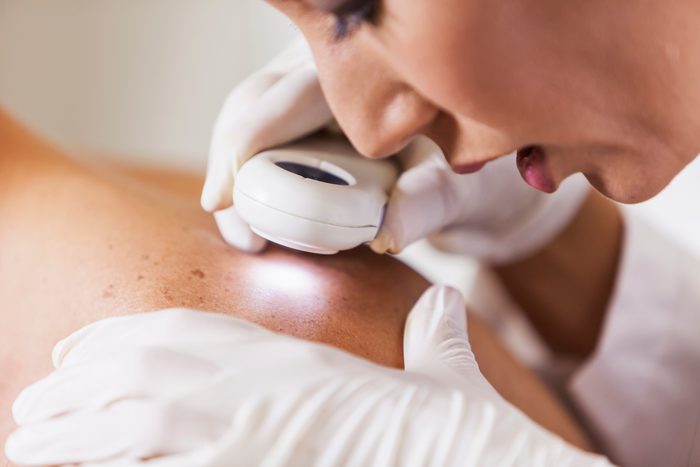
As the body’s largest, heaviest organ, skin helps protect against germs, regulates body temperature, and serves many important functions—so it’s crucial to take care of it. In addition to wearing (and properly reapplying!) sunscreen daily, making a visit to a dermatologist at least once a year is one way to best stay on top of your overall skin health.
Dermatologists are doctors who specialize in the treatment of health issues related to the skin, but also hair, nails, mucous membranes, says the American Academy of Dermatology Association. While a full-body skin exam for moles is one of the ways dermatologists check your skin, they also pay attention to other aspects of your health to learn more about what may be going on. In fact, dermatologists may be able to spot early signs of everything from celiac disease to diabetes.
Dermatologists are experts at knowing the difference between something small and something major. Below, we’ll explore some key aspects your dermatologist first notices about you.
The Pillowtalk Derm’s #1 Rule for Gorgeous Summer Skin: “You Will Be Golden”
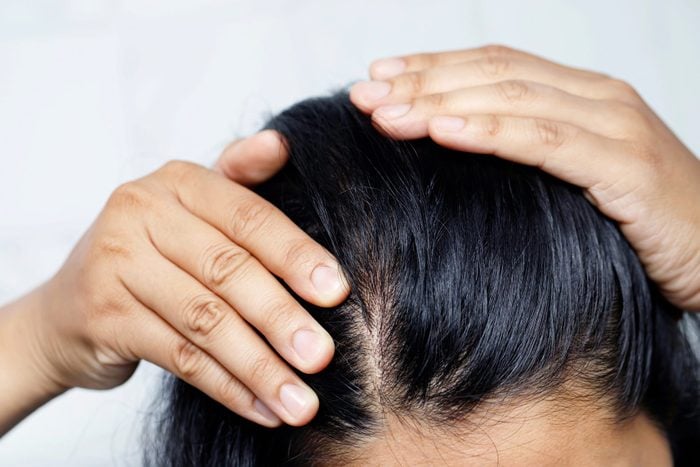
1. Your hair
If you’re experiencing hair thinning or loss, a dermatologist may be able to narrow down the cause by examining your hair and scalp.
“The hair examination can be crucial for many reasons,” says Mona Mislankar, MD, FAAD, a board-certified dermatologist in Cincinnati, OH. “Certain types of hair loss can be scarring or non-scarring, and others are more linked to hormonal hair loss, while others are a clue to a stressful event in a patient’s life—whether that’s a recent surgery, loss of a loved one, pregnancy, a new medication, diet. The list is endless.”

2. Your nails
Next time you head to the dermatologist, remove any nail polish: Dr. Mislankar says the nail examination portion of a visit, which also involves the proximal nail fold—more commonly called the cuticle—is equally important as the rest, since heart disease, liver disease, and pulmonary disease can be spotted in the nails.
Additionally, she says that rashes, such as psoriasis, can sometimes first show up on the nails.
10 Skin Care Changes You Should Make Before Summer, from Dermatologists
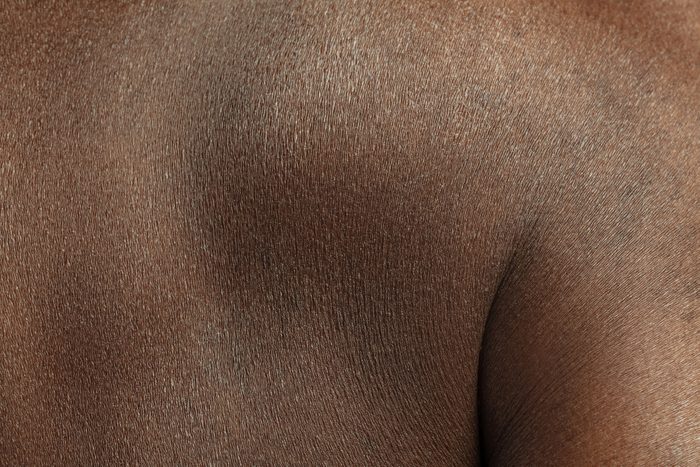
3. Your skin type
Whether your skin type is oily, dry, or a combination of the two, chances are, your dermatologist will be able to spot it immediately. This can help determine which products may work best for your skin needs and can guide the approach that’s provided. While flaking or scaly patches can be a telltale sign of dryness and shiny skin at the nose and forehead that of oily skin, combination skin can be a bit more difficult to narrow down.
“Combination skin types can be a bit more difficult to determine because there may be simultaneous dryness and oiliness—depending on the facial site or even the time of day,” says Dr. Renée A. Beach, MD, FRCPC, Toronto-based Medical & Cosmetic Dermatologist and founder of DermAtelier on Avenue.
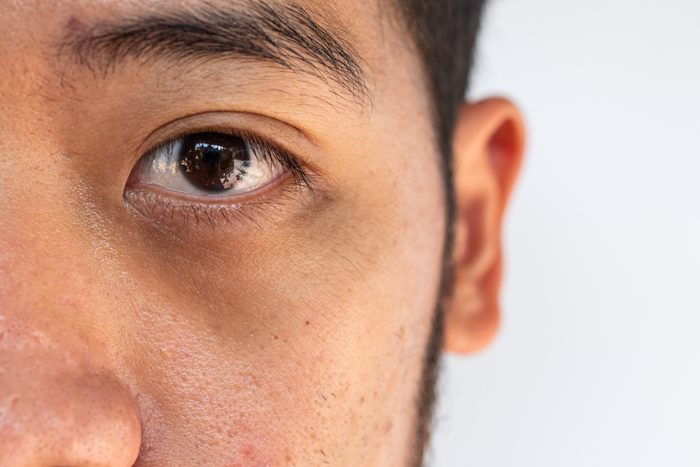
4. Dark circles
Dark circles under your eyes even after a full night’s sleep? Your dermatologist pays attention to this, too. “Some reasons [for dark circles] include skin laxity, increased pigmentation, volume loss, muscle loss and fat protrusion, and allergies,” says Dr. Mislankar.
Caffeine Eye Cream: This One ‘Major’ Effect Makes It Worth a Try, an Esthetician Says
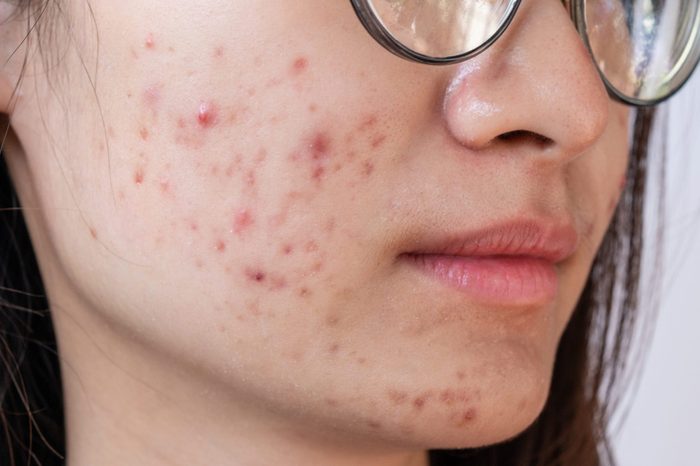
5. Acne or rashes
In addition to an overall body exam for suspicious moles, dermatologists take notice of any acne or rashes a patient may have. Dr. Mislankar says that in some cases, acne can be a sign of PCOS. “Additionally, rheumatology and dermatology often go hand in hand, with many rheumatologic diseases, such as lupus or scleroderma, first showing up as rashes on the skin,” she says.
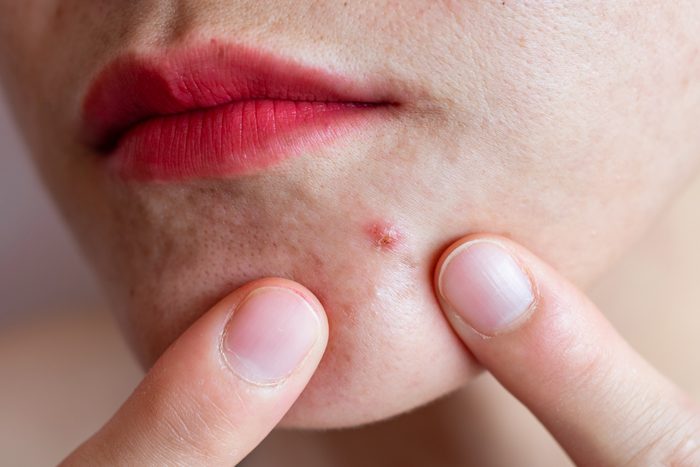
6. Scarring from picking skin
Picking at a breakout is the ultimate skincare catch-22: You think you’re doing your skin a favor, but instead, you may be causing permanent damage. According to Dr. Beach, who says dermatologists keep an eye out for changes related to skin picking, this is one of the most common things patients do.
“It’s generally the worst thing you can do for your skin, because that next skin feature will be hyperpigmentation from inflammation, redness from broken blood vessels, or infection—and in worst case scenarios: Scarring,” she says.
‘What SPF Do I Need?’ Here’s a Dermatologist’s Reliable Method for Choosing
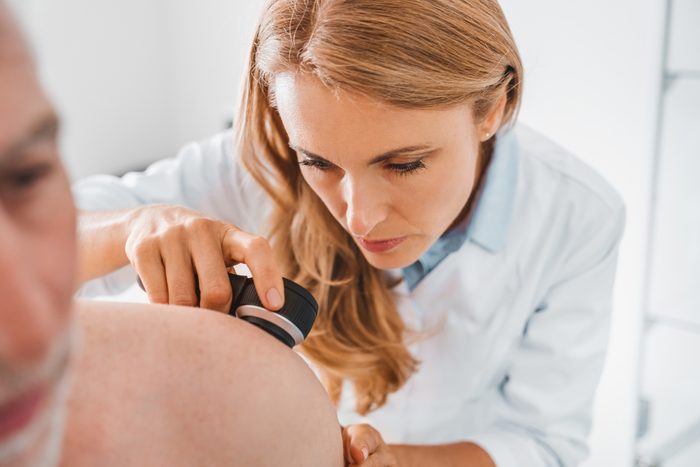
What a dermatologist wants you to know
These are just a few of the ways your dermatologist may observe your overall health and wellness. To maintain healthy skin, the American Academy of Dermatology recommends the following dermatologist-approved tips:
- Wear sunscreen daily (including on your scalp!).
- Stay out of tanning beds.
- Simplify your skin care routine.
- Choose skin care products formulated for your skin type. (Check out the best sunscreens for dry skin, oily skin, and sensitive skin.)
- Treat your lips with SPF.
- Keep your hands off your face.
- Get your skin checked regularly.
By following these steps, you can do your part to set yourself up for healthy skin. If you have questions about your skin, or notice any changes, be sure to talk to a dermatologist for their expert insight and recommendations.
For wellness essentials delivered daily, get The Healthy @Reader’s Digest newsletter and follow The Healthy on Facebook, Instagram, and Twitter. Keep reading:
